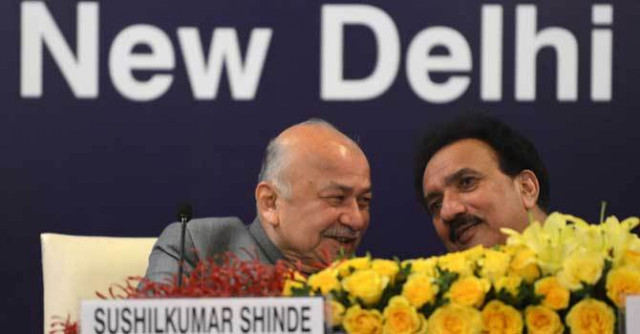State and non-state actors
Indian Muslim terrorists cannot qualify as non-state actors because Pakistan used its non-state actors against India.

He said: 1) Had the intelligence and security agencies in India and Pakistan been cooperating, they could have prevented the Mumbai carnage; 2) the Indian security agencies are to blame for the ‘failure’ to prevent the attacks and that Indian non-state actors were involved in the massacre; 3) Pakistani-American terrorist David Headley had conspired with al Qaeda terrorist Ilyas Kashmiri — a retired major of the Pakistan Army — and three Indian terrorists, Abu Jundal, Jabbiullah (sic!) and Fahim Ansari — to plot India’s worst terror attack; 4) the Mumbai attacks were the work of the Lashkar-e-Taiba (LeT); intelligence failure was owed to the fact that there was no interaction between Pakistan and India on a basis of information-sharing.

There were some revelations in his statement, too, for Pakistan. By his assertion, the government of Pakistan has admitted that Ilyas Kashmiri was a major of the Pakistan Army who had defected to the LeT. So far, the Pakistan Army has denied that he was. Information about him in the Pakistani press says he was a ‘mujahid’ sent across to Indian-administered Kashmir and was fawned over by General (retd) Pervez Musharraf, who rewarded him after he brought back the head of an Indian army officer. The other information which everyone in Pakistan has is that he not only served the LeT but was an important commander of al Qaeda. What Mr Malik did not add was that the Mumbai operation was mounted by al Qaeda to bring about an India-Pakistan war — judging from the Indian reaction to an earlier attack on the Indian parliament by another affiliate of al Qaeda, Jaish-e-Muhammad.
Mr Malik’s remarks on Abu Jundal, that he was an operative for Indian intelligence, did not go down well in India. Perhaps, he was treating the Indian terrorist Abu Jundal and Zabiullah as two persons whereas Zabiullah carried the alias of Abu Jundal when he crossed over to Pakistan and attended briefings near Karachi where he has confessed some Pakistani officials were also present. He is the Indian Muslim terrorist who was handed over to India by Saudi Arabia while holding a Pakistani passport. Mr Malik’s assertion that non-state actors belonged to both sides may not be accurate. Indian Muslim terrorists cannot qualify as non-state actors in the same way as Pakistani non-state actors — simply because Pakistan used its non-state actors as mujahideen against India and is now suffering their onslaughts as affiliates of al Qaeda. India did not use Abu Jundal as a non-state actor against Pakistan.
There are other facts that he has to explain to the citizens of Pakistan. This month, a terrorist who killed the prayer leader of a mosque in Karachi was caught in Karachi. He confessed before the police that 1) he was a resident of Karachi; 2) that he was an employee of the Taliban at Rs15,000 a month; 3) that he had joined the Taliban six months earlier; and 4) that he was trained at a terrorist camp at Mansehra near Abbottabad where Osama bin Laden was finally found and killed. Pakistan says there are no training camps of terrorism in Mansehra. It is difficult after that to understand how the Taliban are still able to train their killers there. A number of recent kidnappings for ransom in the region around Mansehra point to the possibility that the camps there are now relying on crime for funding.
Of course, there is nothing more disarming in a process of reconciliation than coming clean on past mistakes, especially when the powerful clerical-jihadi Difa-e-Pakistan Council is demonstrating aggressively against Mr Malik’s efforts at normalisation of relations with India.
Published in The Express Tribune, December 18th, 2012.















COMMENTS
Comments are moderated and generally will be posted if they are on-topic and not abusive.
For more information, please see our Comments FAQ